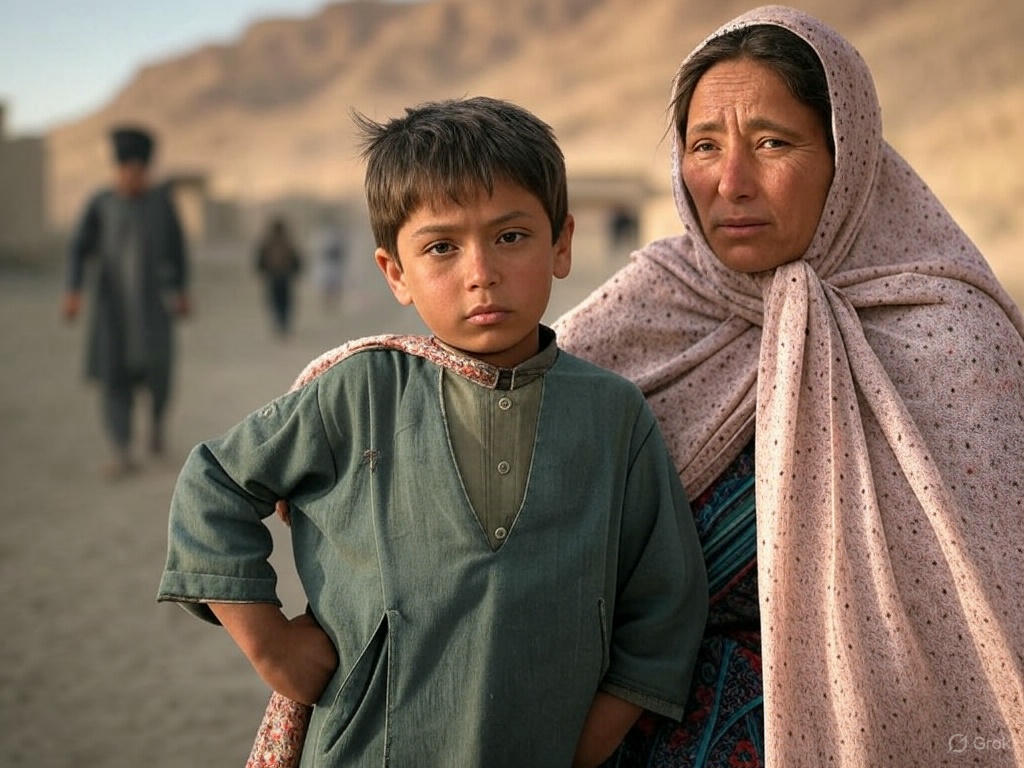
From War to Words: A Refugee's Journey to Finding His Voice
I was just a child when we fled Afghanistan - barely ten years old. The memories of that escape are hazy, fragments really, mostly pieced together from what others have told me. What I do remember is being crammed into a large truck with my mother, making our way to Pakistan. That journey marked the beginning of a new chapter in our lives, one that would take us from the war-torn streets of Kabul to the crowded but free city of Peshawar.
That first night in Peshawar is etched in my memory. We were staying in a second-floor apartment above some shops. When morning came and the shopkeeper lifted the metal shutters below, the sound sent me into a panic. In my mind, I was back in Afghanistan, hearing gunfire. The trauma of war followed us even into safety. For that first year in Pakistan, I couldn't sleep alone. I would cling to my mother at night, seeking comfort in her presence, trying to feel safe in this new world we found ourselves in.
Life began to shift when we moved to Islamabad. My mother found work at a US aid office, and in what I now recognize as a pivotal decision, she enrolled me in a private school. There was something transformative about putting on that school uniform every morning, looking just like every other student. It gave me a sense of normalcy I desperately needed. I threw myself into my studies, eventually becoming second in my class (though I still joke that the principal's son always managed to stay in first place).
The school became more than just a place of learning - it became a second home. After classes ended at 2 PM, I would stay in after-school care while my mother worked. The principal's family took me under their wing, treating me like one of their own. I still remember their attempts to make me drink milk, which I despised. Like any mischievous child, I would wait until they weren't looking, pour it down the sink, and leave a milk mustache on my upper lip as "proof" I had drunk it.
It was during these years that my love for writing began to flourish. I was already fluent in Farsi, my mother tongue, and now I was learning Urdu. Languages opened new worlds for me, and writing became my refuge. Though the specific stories and poems from those days are lost to time, the act of writing itself was deeply therapeutic.
When we finally made it to California, settling in Thousand Oaks, writing took on an even more crucial role in my life. As a teenager, I found myself caught between worlds - desperately wanting to fit in with American culture while carrying the weight of my refugee experience. My writings from those early California days were filled with angst, not just about typical teenage concerns, but about the deeper struggles of displacement and belonging.
I wrote about imaginary heartbreaks and love stories, channeling my real feelings of loss and longing into these fictional tales. Looking back, I realize I was processing the loss of my homeland through these romantic metaphors. Even though I was overjoyed to be in America, to taste true freedom, there was still a profound sense of displacement that needed expression.
The challenges of those early years in California were immense. I spoke English, but my thick Pakistani-Indian accent made me a target for bullying. Even teachers would sometimes mock my pronunciation, using it to elicit laughs from the class. Depression crept in, made worse by the isolation. My extended family was all in Northern California, and I had no Afghan friends nearby. My American friends, though well-meaning, couldn't understand what I was going through. I was completely alone, without any mentor or guide to tell me that things would get better.
This experience of isolation has profoundly shaped how I approach both parenting and writing today. Through my blog at palango.org, I share stories that blend humor with honest reflection about the immigrant experience. My most popular piece, the "College Drop-off Manifesto," uses humor to connect with parents going through major life transitions. I write about being mistaken for maintenance staff during my son's college move-in day, about desperate searches for bathrooms, about all the things that can and do go wrong in these moments of change.
But more importantly, I've become the mentor I never had. When my oldest child faced bullying in middle school, I didn't let them suffer in silence as I had. Instead, I arranged a meeting with the other parents at Starbucks, facilitating the kind of resolution I wish someone had created for me. I tell my children about my struggles, not to burden them, but to show them that challenges can be overcome, that they have advocates in their corner.
Today, my writing serves a dual purpose - it's still cathartic for me, but it's also a beacon of hope for others who might be going through similar experiences. If even one refugee child in 2025 reads my words and feels less alone, then every painful memory I've transformed into story has been worth it. This is how we heal - by turning our struggles into stepping stones for others, by ensuring that the next generation has the guidance and support we wished we had.